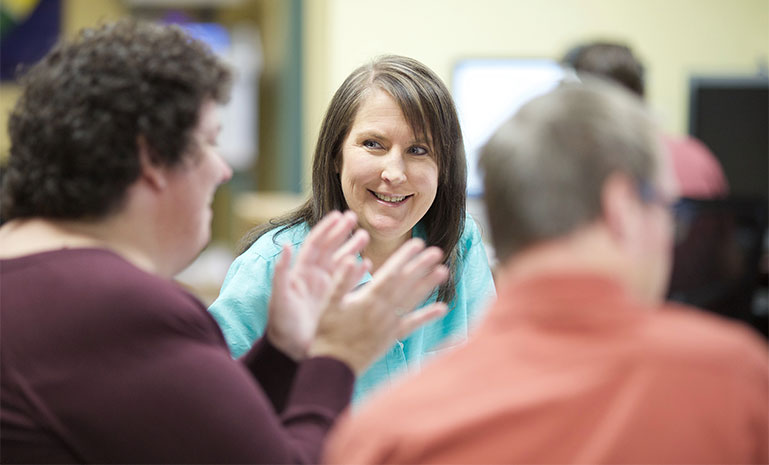
Entering the workforce is a rite of passage for most youth, but it can be a considerable challenge for people with developmental disabilities, such as intellectual disabilities or Autism Spectrum Disorder. In fact, these two groups represent the most unemployed or under-employed category of citizens in Canada.
In an effort to improve this scenario, the BC Transitioning Youth with Disabilities and Empowerment (TYDE) project is working to empower youth with developmental disabilities to understand their aspirations and better articulate their abilities to future employers. The project involves creating an accessible and interactive online curriculum with innovative learning modules, focused on enabling participants to expand their career prospects and sense of self-determination.
“The research is very clear,” says Dr. Rachelle Hole, UBC Okanagan School of Social Work Associate Professor and TYDE lead. “Supporting self-advocates as they transition from school to adult life and giving them opportunities to contribute through meaningful work has enormous benefits for both the individual and the businesses they work for.”
The initiative counts on the support of researchers from three universities, 11 community organizations, three B.C. ministries, and several paid self-advocate consultants. Through a collaborative, innovative and research-based approach, TYDE is supporting the translation of research into action through Strategy 9: Knowledge Exchange of UBC’s strategic plan.
Check out Innovation UBC to learn more about how TYDE is empowering both youth and employers while also supporting the province’s goal of making B.C. a truly inclusive place for people with disabilities by 2024.